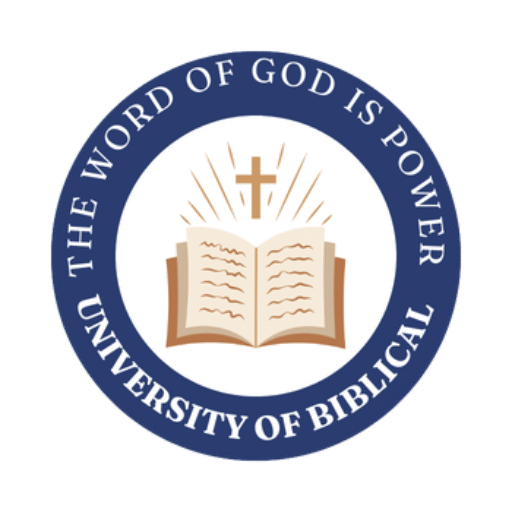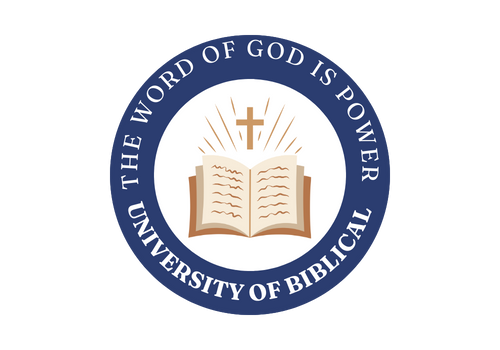Curriculum
- 6 Sections
- 28 Lessons
- 10 Weeks
Expand all sectionsCollapse all sections
- MODULE 1: Introduction to the Old TestamentThis in-depth course is designed for students seeking a strong biblical foundation in the Old Testament scriptures. It offers a comprehensive study of the first 39 books of the Bible, tracing God’s redemptive plan from creation to the exile of Israel. Through guided exploration of the Torah, historical narratives, poetic literature, and prophetic texts, students will learn how the Old Testament reveals God’s character, His covenantal relationship with humanity, and His promise of the coming Messiah. By the end of this course, students will: Understand the historical, cultural, and theological background of each Old Testament book. Grasp major biblical themes such as creation, covenant, sin, justice, mercy, and prophecy. Identify messianic prophecies and see how they connect to the New Testament. Gain tools for interpreting scripture faithfully and applying it to Christian living, ministry, and teaching. The course balances academic integrity with spiritual formation, encouraging not only the acquisition of knowledge but also the deepening of faith.5
- 1.1Lesson 1.1: The Structure of the Bible (Law, History, Wisdom, Prophets)60 Minutes
- 1.2Lesson 1.2: Timeline of Old Testament Events
- 1.3Lesson 1.3: Themes of Covenant, Kingdom, and Messiah
- 1.4Lesson 1.4: The Authority and Inspiration of Scripture
- 1.5Module 1: Introduction to the Old Testament5 Minutes5 Questions
- MODULE 2: The Pentateuch – The Law of GodThis module explores the foundational five books of the Bible—Genesis, Exodus, Leviticus, Numbers, and Deuteronomy—collectively known as the Pentateuch or Torah. Students will uncover the origins of creation, humanity’s fall, God’s covenant with Abraham, and Israel’s journey from slavery to becoming a nation under God’s law. The themes of redemption, holiness, divine instruction, and covenantal relationship are central. This module lays the theological groundwork for the rest of Scripture and shows how God's law reveals both His holiness and His desire for a relationship with His people.6
- 2.1Lesson 2.1: Genesis – Creation, Fall, Flood, and the Patriarchs
- 2.2Lesson 2.2: Exodus – Redemption, Moses, and the Law at Sinai
- 2.3Lesson 2.3: Leviticus – Sacrifice, Priestly Duties, and Holiness
- 2.4Lesson 2.4: Numbers – Rebellion and God’s Faithfulness in the Wilderness
- 2.5Lesson 2.5: Deuteronomy – Covenant Renewal and Final Instructions
- 2.6Module 2: The Pentateuch – The Law of God5 Minutes5 Questions
- MODULE 3: The Historical Books – Israel’s Rise and FallCovering Joshua through Nehemiah (with Esther as an appendix), this module examines the history of Israel’s occupation of the Promised Land, its transformation into a kingdom, and its eventual exile and return. Students will analyze the leadership of figures like Joshua, Deborah, Samuel, David, and Nehemiah, and study the spiritual and political shifts in Israel’s national story. This module highlights how obedience brings blessing and disobedience invites judgment, offering timeless lessons in leadership, repentance, and God’s covenant faithfulness.6
- 3.1Lesson 3.1: Joshua – Conquest of the Promised Land
- 3.2Lesson 3.2: Judges – Cycles of Sin and Deliverance
- 3.3Lesson 3.3: Ruth – Redemption Through Relationship
- 3.4Lesson 3.4: Samuel and Kings – Monarchy, Division, and Prophetic Voice
- 3.5Lesson 3.5: Chronicles, Ezra, Nehemiah – Restoration After Exile
- 3.6The Historical Books – Israel’s Rise and Fall5 Questions
- MODULE 4: Wisdom and Poetic Books – Theology in LifeThis module provides insight into how biblical faith addresses the deepest questions of human experience. Students will explore Job’s struggle with suffering, the Psalms' poetic expressions of worship and lament, Proverbs' practical guidance for godly living, Ecclesiastes’ search for meaning, and the Song of Solomon’s celebration of covenant love. Together, these books demonstrate how to walk with God through seasons of joy, sorrow, uncertainty, and praise—teaching that true wisdom begins with the fear of the Lord.6
- 4.1Lesson 4.1: Job – God’s Sovereignty in Suffering
- 4.2Lesson 4.2: Psalms – Prayer, Praise, and the Messianic Hope
- 4.3Lesson 4.3: Proverbs – Wisdom and Godly Living
- 4.4Lesson 4.4: Ecclesiastes – Meaning and Mortality
- 4.5Lesson 4.5: Song of Solomon – Love and Covenant Imagery
- 4.6Wisdom and Poetic Books – Theology in Life5 Questions
- MODULE 5: The Prophets – God’s Call to Repentance and RestorationThis module introduces students to the Major and Minor Prophets, including Isaiah, Jeremiah, Ezekiel, Daniel, and the twelve smaller prophetic books. Through these voices, students will hear God’s passionate calls for justice, repentance, and covenant renewal. These books also contain powerful messianic prophecies and visions of future hope. By studying their historical context, theological themes, and enduring relevance, students will learn how the prophetic message challenged Israel and still speaks prophetically to the Church today.6
- 5.1Lesson 5.1: Isaiah – Holiness, Judgment, and the Suffering Servant
- 5.2Lesson 5.2: Jeremiah and Lamentations – The Weeping Prophet
- 5.3Lesson 5.3: Ezekiel – Visions of Glory and the New Heart
- 5.4Lesson 5.4: Daniel – Faith in Exile and Kingdom Hope
- 5.5Lesson 5.5: Minor Prophets (Hosea–Malachi) – The Voice of God in Crisis
- 5.6The Prophets – God’s Call to Repentance and Restoration5 Questions
- MODULE 6: The Messiah and the Old TestamentThis final module connects the Old Testament to its ultimate fulfillment in the life and mission of Jesus Christ. Students will trace messianic prophecies, typologies, and redemptive themes that point directly to the New Testament gospel. From the promises made to Abraham to the Suffering Servant in Isaiah, the Scriptures foreshadow Christ’s work as Prophet, Priest, and King. This module helps students see the Old Testament not as a closed history, but as a living foundation for New Covenant faith.5

